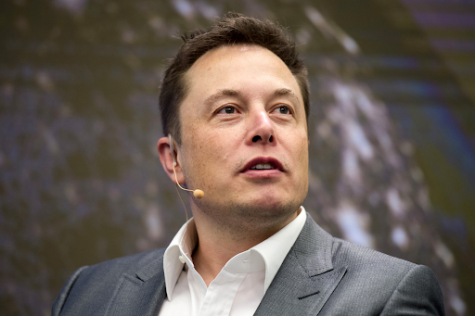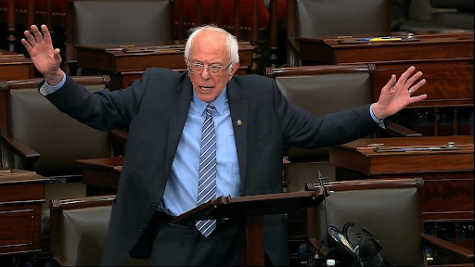Elon Musk Set to Become First Trillionaire
Measured in time, a million seconds is equivalent to 12 days. Compare that to a billion seconds which equals a whopping 11,315 days or 31 years. Countless economic liberals have made these comparisons to show the rigid dichotomy in size between a million dollars and a billion dollars. But as of late, there is another compassion to account for; a trillion seconds is equal to 31,688 years. Elon Musk is set to accumulate the quantity of money with the SpaceX program. Ever since John D. Rockefeller became the first man to have a net worth of a billion dollars, an ongoing political debate regarding the significant differences in class has brought the extreme wealth divide to light. Now, with SpaceX’s rapidly growing market, the question of how and if billionaires and trillionaires should exist in today’s society has been emphasized even more.

For perspective, the United Nations claims that an estimated 30 billion dollars per year would end world hunger. However, compared to the combined wealth of just the 25 wealthiest Americans, this number is a water droplet in an ocean. Their combined 11.95 trillion dollars, according to the Economic Times, would fund resources to end world hunger for just over 398 years.
It is important to acknowledge all the arguments surrounding the wealth gap. Many believe the richest people in the world should be taxed at a higher rate than the general public to contribute more to global issues such as climate change, world hunger, or ending homelessness since they have the resources to do so.
Alexis Allen (11) claims, “There is absolutely no need for anyone to have one billion [dollars], much less one trillion. Nonetheless, I’m not going to say [taxes should be] one hundred percent, but I mean no one should be making over a billion dollars a year with taxes. So I think that’s where I’d draw the line.” Furthermore, when asked what she would do with a billion dollars, Alexis responds, “You can’t spend a billion dollars in a lifetime. I would probably set aside 5-10 million [dollars] for myself and my family and then donate the rest.” Many others thought this way.
Connor James (9) plans to “set [himself] up with a nice house and then invest the rest in charity, and Riya (10) would “invest some in the stock market and contribute the rest to some form of research like cancer or climate change or something.” Consistent responses like these make one wonder why the rich continue to hoard their money, and with funds from SpaceX, it will be interesting to see if Musk becomes more charitable.
However, those who fall more on the fiscal side of economics are celebrating Musk’s success. Aidan Headly (11) says, “Good for him.” He points out that “The rich pay a steadily higher tax rate on their income as it rises, why would we tax them even more.”
Contrary to this statement, the ultrarich often find loopholes to avoid paying their share. For example, ProPublica found that the 25 richest Americans paid a “true tax rate” of 3.4% between 2014 and 2018 compared to the 14% income tax middle class households paid. Many of these billionaires have connections that help them cut corners and avoid paying taxes often with no repercussions. So while Headly is correct in saying taxes are supposed to be proportional to income, oftentimes this is not the case. Those who aim for higher taxes on the rich are self proclaimed to be “encouraging Congress to make taxes more equitable” and holding the government accountable from collecting the 1%’s taxes.

In brief, the recent projections predicting Elon Musk to become the first trillionaire have become a catalyst for debate over wealth equity. Readers should stay updated on the perspectives of this argument, and the actions taken by both sides in Congress to address it.


